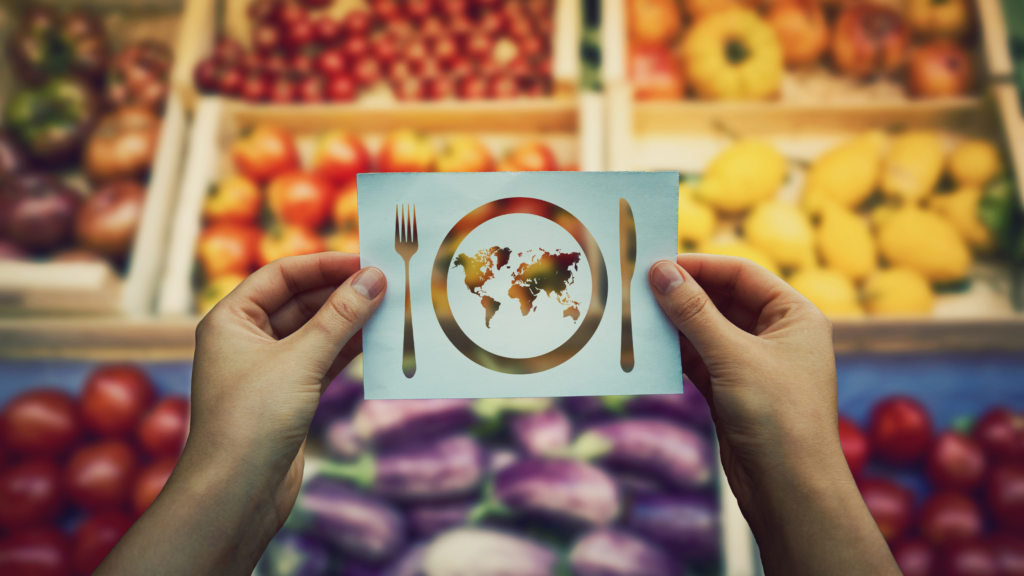Nourishing a Growing World: Building a Resilient Food System for the Future
On World Population Day 2023, as we reflect upon the challenges and opportunities presented by a rapidly growing global population, it is crucial to address one of humanity’s most fundamental needs: food. As the world’s population continues to rise, reaching approximately 8.5 billion people today, ensuring sustainable food production, equitable access, and proper nutrition for all has become an urgent priority. Let us delve into the significance of this day and explore the ways in which we can tackle the food-related challenges that lie ahead.
Feeding a growing population is an intricate challenge that requires innovative solutions. With the Food and Agriculture Organisation (FAO) projecting the global population to reach nearly 10 billion by 20501, the demand for food is expected to rise significantly. To meet this demand sustainably, we must rethink our agricultural practices, adopt cutting-edge technologies, and promote responsible consumption habits.
Sustainable agriculture plays a pivotal role in securing food for future generations. Embracing agroecological approaches, such as organic farming, integrated pest management, and crop diversification, can reduce the reliance on synthetic inputs and minimise the environmental impact of agriculture. By prioritising soil health, water conservation, and preserving biodiversity, we can create a resilient food system that can withstand the challenges posed by climate change.
Technological advancements offer immense potential to enhance agricultural productivity and efficiency. Precision agriculture, powered by artificial intelligence, drones, and remote sensing technologies, enables farmers to optimise resource usage and maximise yields. Additionally, gene editing and biotechnology can help develop crops that are more resistant to pests, diseases, and adverse climatic conditions. However, it is crucial to ensure that these technologies are deployed ethically and in a manner that respects the environment and human health.
In addition to rethinking agricultural practices and embracing technological advancements, it is crucial to diversify the food crops we grow and use. Rather than relying solely on a few popular crops, we should explore and promote the cultivation of underutilised and traditional food crops. Ancient grains, neglected crops, and tree crops offer nutritional benefits, adaptability to diverse environments, and ecosystem services. By expanding our crop choices, we can enhance biodiversity, improve nutrition, and build a more resilient food system for the growing world population.
Addressing the issue of food waste is a vital aspect of achieving global food security. Approximately one-third of the food produced globally is lost or wasted. By reducing food waste at various stages of the supply chain, from production to consumption, we can alleviate pressure on agricultural resources, conserve energy, and reduce greenhouse gas emissions. This calls for improved storage and transportation infrastructure, consumer education, and collaboration among stakeholders to create a more efficient and sustainable food system.
While focusing on increasing food production, we must not overlook the importance of equitable access to food and proper nutrition. Despite producing enough food to feed the entire global population, millions still suffer from hunger and malnutrition. It is essential to address the underlying factors that contribute to food insecurity, such as poverty, social inequalities, and conflicts. By promoting inclusive policies, supporting small-scale farmers, and investing in nutrition programs, we can ensure that everyone has access to safe, nutritious, and culturally appropriate food.
As we mark World Population Day 2023, let us recognise the interconnectedness of food, population growth, and sustainable development. By adopting sustainable agricultural practices, harnessing technology, reducing food waste, and promoting equitable access to nutrition, we can lay the foundation for a food-secure future. As individuals, communities, and nations, we must work collectively to transform our food systems, making them resilient, inclusive, and capable of nourishing a growing world.
1. Global agriculture towards 2050
https://www.fao.org/fileadmin/templates/wsfs/docs/Issues_papers/HLEF2050_Global_Agriculture.pdf

